#biology phd
Explore tagged Tumblr posts
Text
I know this blog is lichen focused, but I also consider it a science blog and a space where I can talk about my experiences in science and academia. My most recent field work involved catching, handling, and ringing birds at a bird observatory, and I wanted to talk a little about the harsh realities of working with wild animals that I feel like don't get represented enough. I think it's important to paint a fair and realistic picture of what the world of animal research looks like, as it often gets misrepresented in media.
Wild animals do not like being handled. You have probably heard some story or seen some movie that makes it seem like you are somehow gonna connect to the animals you are working with and reassure them that you mean them no harm. No no, you are a big scary predator and they have no idea what is happening, and they scream, bite, and fight like hell to get away from you. This runs the gambit from kinda funny to mildly annoying to actually making it hard for you to work to making you feel bad for putting these animals through this stress. There will be no special magical wild animal friendships, trust me.
Animals are DIRTY. Like I know you know that on some level, but you don't really know it until you are up close and personal with them. In the case of the birds I work with, this usually means shit. Lots and lots of shit. On them, or you, on every surface and article of clothing you have. And you may think "in the grand scheme of poops, bird poops aren't so bad." But let me tell you: in sheer quantity and viscosity, bird shit beats them all.
PARASITES. Now we are not anti-parasite on this blog in general, they have their place in the ecosystem just like everything else. But personally, I don't really enjoy having to see them or experience them up close and personal. I'm talking ticks, fleas, mites, intestinal worms, louse flies, etc. Just . . . no thanks.
Animals get injured, and having to see these injuries up close and knowing there isn't anything I can do about it is hard. Be they old wounds, new, or the very rare wound that can occur during the catching and handling process, it can really get you down looking at an animal that you can't help.
Animals are unpredictable. Like, most of this field is about *trying* to predict their behavior, but animals are true disciples of Murphy's Law, and I swear they get off on frustrating scientists and their well laid plans and hypotheses. For me, this meant that the birds I was working with just didn't show up in the predicted numbers. This was frustrating to me on a how-the-fuck-is-my-project-gonna-work-out-now? level, but also on a worried-for-the-health-of-the-birds-and-the-planet level. If you enjoy work that is predictable and dependable, wildlife biology isn't for you.
I wat to be clear that I LOVE what I do, and I wouldn't trade it for the world. The work I and other wildlife biologists do is incredibly important and I am not saying this to cast a disparaging light on the field. But so many wildlife biologists I have interacted with are not like, bleeding heart, sensitive babies like me, and didn't adequately prepare for the mental and emotional toll of working with wildlife. I think the field selects for folks who are able to compartmentalize their love and empathy for animals, and I don't like that. I think we need people like me in the field, but I think they should be prepared for the reality of it, that's all. Or maybe I just need to vent lol.
#not lichens#biology#wildlife biology#field work#biologist#wildlife biologist#graduate student#biology phd#nature#tw animal harm#tw parasites
202 notes
·
View notes
Text
Hey it's a life update that probably no one cared about or asked for
tl;dr: I'm likely quitting my PhD via mastering out, and leaving my program in June.
sappy, overly emotional vent/explanation:
I'm wrapping up my first quarter as an out-of-the-closet trans woman. I've had some serious conversations about where me and my work stand. This was always my intention after coming back from my summer hiatus/social transition: see how "reentry" works, and then assess from there.
For those that don't know, PhDs in the US take 5-7 years. Oftentimes, however, they either give you a master's along the way, or give you an option to quit halfway through with a master's. I'm in my 3rd year and have more than enough to use that option. I've toyed with this idea before, but it feels a bit different now. Last year, I was burned out from science, my project was failing, and I was under constant stress of boymoding and remaining in the closet. Now, I'm out and proud, and I deeply love my project and find it exciting. I fixed some things.
Unfortunately, I have a recurrent problem. Whenever something goes wrong in my life, the first thing to drop off is my ability to drive forward my own thesis project in a coherent way. What the actual problems are vary, but that motif stays the same. I could list off what's going on right now, but I think y'all can assume a bit of what a mid-20s, broke, recently transitioned trans woman in the US is going through at the moment. There's a lot of specifics, of course, but I'm not at liberty to say most of it.
So I'm looking around and realizing I have scraps of half finished projects, I've given support and help for other people's projects.... and then made little progress on my actual thesis. It's enough to pull together into a master's thesis, and maybe even another paper or two, but.... not a PhD.
And then there's the other side of it. The nicer reasons. Could I stay here, buckle down, maybe add years to my degree, and get through it? Probably. But honestly? I don't really want to put myself through that now. It used to be that academics was all I had. It was all my failures and all my successes. It's what I threw myself at, because I genuinely had nothing else going on. Since transitioning, the world seems so much more beautiful and rich, so much more complex and vast, with so much more to do in it. I've even had more negative experiences unrelated to academia, and while they've sucked, they've shown me that life is so much bigger than it was before.
To be blunt, to experience more of my life... it helps to have money, and it helps to have career stability. It's not the only factor by far, but certainly one defining moment when making this decision was trying to create a timeline and budget for transition related surgeries, and realizing that its near impossible in grad school.
Not to be dramatic, but I've also had a couple extremely jarring experiences in the past year that are reminded me that life is short. And I want at least some time to enjoy it.
My heart is honestly broken here, and I'm feeling extremely emotional about this. I love my lab, my colleagues, the environment of doing research, and my project. But I'm realizing that it might not be viable, or what makes me the happiest at the moment. I'm genuinely a bit distraught, and I've been crying a lot for the past few days. A lot of me feels like this is what I am, and this is what I'm good for. That I'm failing myself and every mentor that got me here. Some part of me knows that isn't true, some part of me can't let go of those feelings.
But, I know this doesn't mean "never". So many of the people in my program are significantly older than me, coming back later in life to get their degrees. I'm honestly almost positive that I'll come back to a PhD someday if I quit now. In my 30s or beyond, I think that I'll be able equipped to handle it much better.
So what's next?
Obviously, nothing is decided, and I'm just spitballing here. But I'm honestly shocked at how many viable options I have, in a very good way. A cursory scroll of Indeed was honestly therapeutic. As I said, I still love the academic research environment. I just need more money and stability, and would prefer to have a slightly different relationship to the work I do than a thesis project. Ideally, I would want to be a staff researcher in an institute or academic lab. That lets me keep a lot of the things I like about what I do now, while also making literally 2-3 times the money and having a more stable position.There's positions out there that maximize the contexts I'm the strongest and happiest with, while still being more steady and paying more. Hell, even if my responsibilities were identical, but I had more pay, I could probably more effectively address the personal problems I'm going through right now. I'm gonna stay in California for a lot of reasons, and I'm lucky that there's so many options within the state.
I have a bit of an oddball set of experience. I'll actually have two nonoverlapping master's if I do this. I already have a MS in bioinformatics, which was granted by a CS department. But my current program is in more "pure" molecular and cell biology. I'll have 5 years of grad school, 8.5 years of research experience if I include undergrad research, and instead of a PhD, 2 MSs. Which is kinda funny. But it think it helps represent my experience for what it is. I like to consider myself a "full stack" bioinformaticist- someone who can do both the experimental and analysis portions of experiments that produce large data. Hopefully I'll be able to put that to good use.
I have a lot of professional contacts that I'll slowly be reaching out to over the course of the next 6 months while I tie things up. I know this is a wildshot on tumblr of all places, but if anyone has any recommendations, advice, or contacts, I'm all ears- both for professional and job hunt related things, and also the emotional state I'm in right now.
Thank you to everyone that's made up this wonderful community we have online. I hope I'm not letting anyone down. I'll still be a biologist, I'll still be my trans self. I just won't be "Doctor" anytime soon.
239 notes
·
View notes
Text
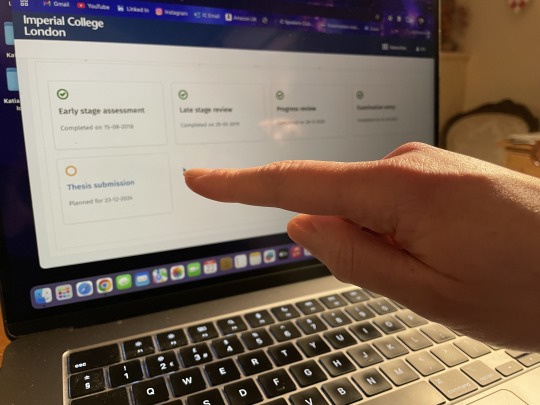
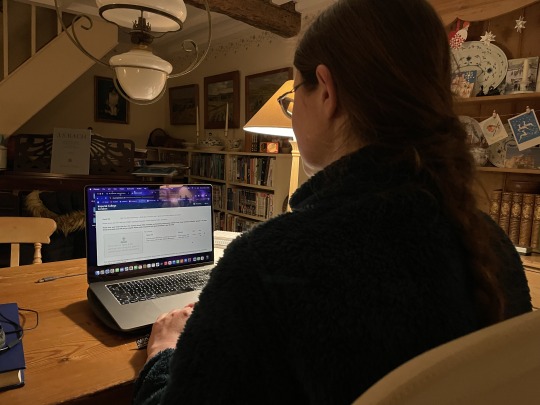
Today I submitted my PhD thesis.
#katia plant scientist#plant biology#plants#plant science#botany#work from home#green academia#academic aesthetic#cottagecore#christmas#phd life#phd student#phdjourney#phd research#phdblr#grad school#thesis
142 notes
·
View notes
Text
Incredibly Healthy Habits For Students
The most commonplace advice on good habits for students. This crucial component of a healthy relationship is not to be overlooked.
1. Don’t over-stuff your backpack.
Unless a professor tells the class to bring a textbook – keep that thing at home/in your dorm. Also, try not to carry too much with you anyway. At most I have a spiral or two, my computer. It’s not only unnecessary, but it’s heavy. It wears you down over time just adding stress and annoyance that you don’t need.
2. Work out every week.
Finding time to run a mile or two, play some basketball, or lift weights is important. It was a huge stress reliever for me and it also made me happier.
3. Stop Putting Things Off.
You know you should be finishing homework instead of going out every night. The crazy thing is, we ALL KNOW what we should be doing. But a lot of us still don’t get anything done. I’m in awe of the number of times I have put off studying or reading. However, every time I come to the simple conclusion that getting it done in the beginning is waaaaaay easier than trying to finish the task later.
4. Socialize.
Involvement in college is a spectrum. One extreme includes hobbits who stay in their dorm or apartment all day and the other includes social butterflies who are out on the town every night having fun with friends. Your goal is to find a happy medium. You don’t want to be closed off but you also want to interact with people every once in a while.
For me, this was the hardest part. I do not like to make acquaintances, but for myself I decided that it would be useful. I stepped out of my comfort zone.
5. Eat Healthier.
This is the most predictable advice I can give you. What you put in your body matters.
6. Drink more water.
Drinking water is one of the most essential healthy habits for students.
7. Know When To Say NO.
If you get your work done first, you will have time to have fun without any grief or regrets.
The most important relationship you make in your life is with yourself. It’s genuinely all a mind game. You have to learn to trust yourself by putting yourself first so that you can enjoy what life has to offer you. Having fun with this grey cloud of regret and worry about work you haven’t finished is just not fun at all. So have fun and be yourself but learn when to say NO. You’ll be forever grateful you did in the long run.
8. Give Yourself Grace.
One of the biggest downfalls for me was stressing out. Stressing over school work, time management, boys, networking, and the list goes on. It’s important to shut all the negative voices out.
There’s only one you so treat yourself with respect. If there are things you need to fix, make a plan and make it happen. If that fails, adjust the plan. No one is perfect and I wish we would collectively tell ourselves it’s going to be ok. Because it will be!

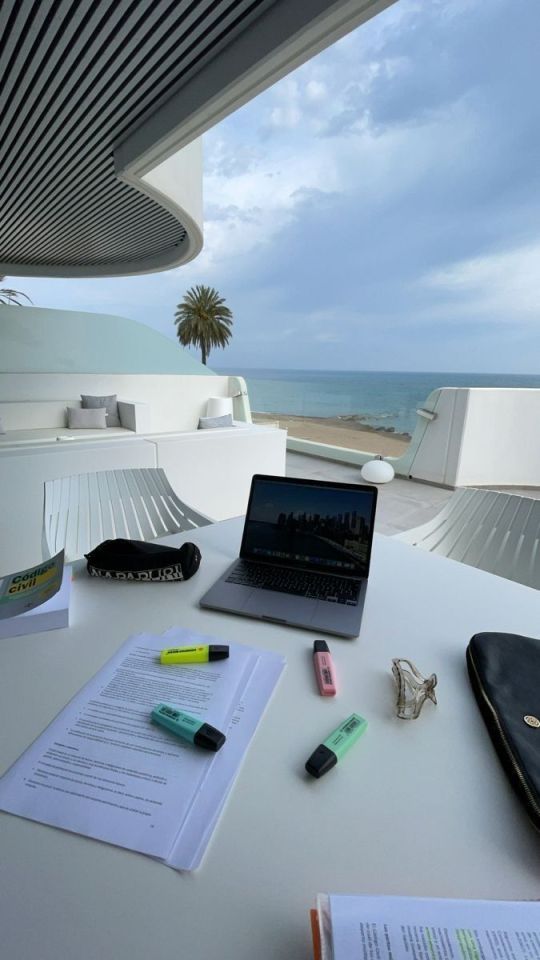
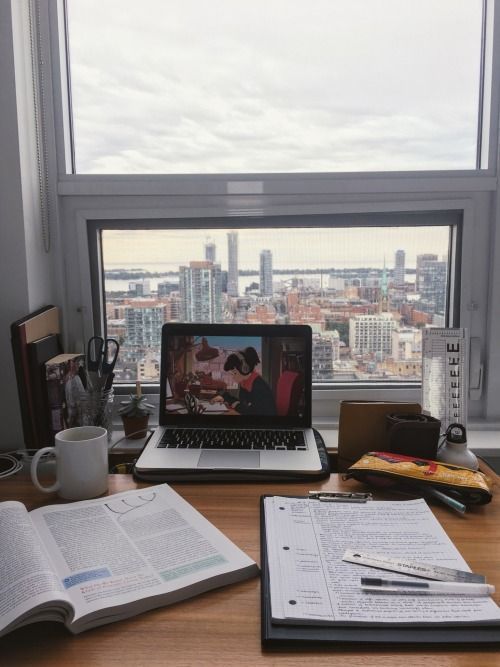

#study blog#study motivation#biology#science#unidays#blogger#my day#diary#university#real life#student#sports#100 days of studying#new studyblr#phd student#student life#study#study aesthetic#study hard#study inspiration#study notes#study space#study tips#study with me#studygram#studying#studyspo#studywithme#studystudystudy#succession
774 notes
·
View notes
Text
52 more days of the semester (3/22/2025)
Studied for a palpation exam on Monday! I do not know most of it tbh
Review Immunology + did some notes
Started reading Popular Hits of the Showa Era


#im sooo ready for summer can you tell#school#science#biology#study motivation#study blog#studyblr#study life#journal#studyblr community#studying#student#studyspo#student life#scientists#stem academia#women in stem#stem#stemblr#stem student#phd
35 notes
·
View notes
Text
Work on a scientific article
What it actuallly entails:
Come up with an idea, define an interesting problem
Do thorough literature research. Maybe similar stuff was already done. Define the knowledge gap well.
Plan in detail, how we can solve the problem, design experiments
Reach out to potential collaborators, agree with them on a plan
Buy necessary equipment, chemicals
Do pilot experiment, optimize the conditions to get reliable data
Perform experiments, calculations, make everything multiple times so it's reliable
Analyze the data
Urge collaborators to deliver their parts
Coordinate your progress with the collaborators
Manage the collaborations, organize meetings
Be diplomatic, you don't want to make enemies in academia
Agree with direct colleagues, who worked on it, what will be the message of the article. Will it be a long story and we need to add some more data? Or will it be short and right to the point and we write a short "letter"?
Do literature research again. Maybe new stuff appeared, and for sure your data must be confronted and discussed with already known facts.
Write the first draft of the article
Send it around for feedback, first only to direct colleagues from your lab
Incorporate the feedback, maybe do more experiments and more analysis
Rewrite the manuscript
Send it around the second, third, fourth, fifth... time
Incorporate the feedback
Send the manuscript to all collaborators.
Wait for the feedback, urge everyone to give it, maybe you don't have all data from all the collaborators yet
Incorporate feedback
Prepare the manuscript for journal submission
Get approval from all co-authors
Submit the manuscript
Wait for editor response, hopefully they send it to reviewers. If not, you need to rewrite a bit the article to adhere to the new journal's format and send somewhere else.
Get reviewers' reports, deal with them, reply truthfully, make effort to explain everything even if you know that the reviewer's suggestion is just impossible or irrelevant. Be diplomatic.
Maybe you need to do an additional experiment, analysis, or rewrite a major part fo the manuscript. This can take months.
Submit revised manuscript with all the changes
Wait for editor's nad reviewers' comments in the second round. You can get many rounds of review and still get rejected.
Finally get a "Congratulations, your manuscript has been accepted for publication"
Pop a shampagne! You deserve it!
What part of this do you usually do in different career stages:
BSc. and MSc. students: Perform experiments and analyze data
PhD students: Do all the experimental and analysis parts, write the manuscript, discuss with their supervisor and direct colleagues, incorporate feedback. But does not have to come up with their own idea and manage collaborations and diplomacy.
Postdocs: Do literally everything on the list
Group leader/Professor: Do the thinking and managing parts, help with writing and feedback, provide discussions and insight. Do not perform actual experiments and analysis.
Being a postdoc is the transformation between the student and the group leader.
As such, we just have to do all these tasks. It's stressful. It's challenging. It's definitely not boring. I am taking every opportunity to get a student, who can help with the experimental repetitions so I have time for all the other stuff.
#science#women in science#research#postdoc#group leader#academia#phd student#PhD#manuscript#article#publishing#scientific publication#overload#overworked#tasks#to do list#insights#biophysics#physics#biology#stem#original content
59 notes
·
View notes
Text

#i love pulling shit out of my ass when it comes to biology#who needs a phd anyway#rainworld#rainworld downpour#rainworld slugcat#rain world art#slugcat#spearmaster#anemoart
319 notes
·
View notes
Note
Do you have a degree? If so what is if in!
Asking because I am a prospective college student and your job sounds awesome.
I am currently working on getting my PhD in biology, and I work as a research and teaching assistant to fund this endeavor. I got a bachelor's degree in conservation biology, and a master's in evolution, ecology and systematics. I took a rather circuitous path to get here, and have had jobs in conservation and science education before this that also allowed me to get nasty, but it was less acceptable for me to be unpleasant and unhinged at those jobs, and so I headed into academia where it is more acceptable to be completely bananas about your field of study, and I interact with the public less.
68 notes
·
View notes
Text

this is actually my dream scenario to be honest. i wish i was on a beach right now observing various sand critters and ignoring someone drowning in the ocean. that would make me so happy.
#i'm CPR certified but i'm not getting involved in any of that. the sand critters need me.#<- accidentally perfect metaphor for how i should quit my hospital job and get that biology phd after all
14 notes
·
View notes
Text
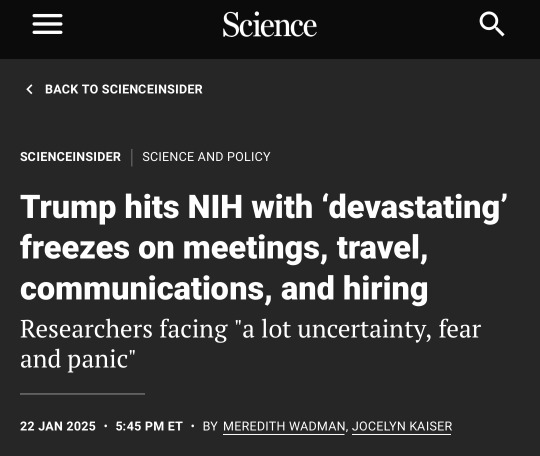
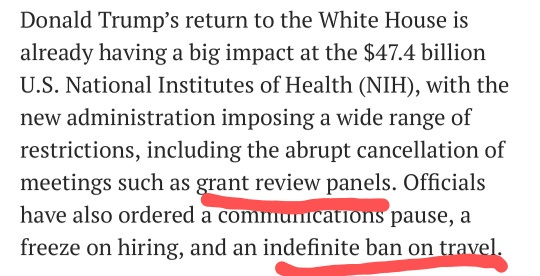
Yup, bye. Politics aren't the only reason (or even a main reason)I'm mastering out of my program this year, but seeing shit like this doesn't help. I genuinely have no idea if this would have any effect on my labs regularly renewed grants or the training grants I might've applied for, but at this point, I don't care to find out.
Time to start the rest of my goddamn life. Maybe I'll be back someday with a less batshit administration and more financial stability. At least my two master's degrees won't be overlapping (bioinformatics and molecular bio), and for some industry positions I have enough years of research experience to be PhD equivalent with those degrees.
112 notes
·
View notes
Text

24.11.23
I finally finally broke through the cloning lab work we've been stuck on for two weeks! We're behind on the project plan/schedule, but I feel more 'in it together' with my supervisor now, and I'm hopeful that we're on top of it and I'll get to do cool data collection over the next few weeks!! It'll be a busy time but yay. ❤️✨🧪🥼
At first was really annoyed about having to stay late this evening (on a Friday night!), as I needed help and had to keep waiting around for my supervisor to have time; but in the end I got really engrossed in understanding a problem and designing some primers by myself, and I'm super proud of that! It's very confusing with the type of plasmid we're constructing (a hairpin vector for any molecular microbiologists reading this lol❤️) so I think I did really good.
And then I actually finally got back to art and drawing this whole long evening when I had the flat to myself!!
30/100 days of productivity
#studyblr#my work#phd#100 days of productivity#phd life#gradblr#phdblr#motivation#biology#chaotic academia#desk space
89 notes
·
View notes
Text
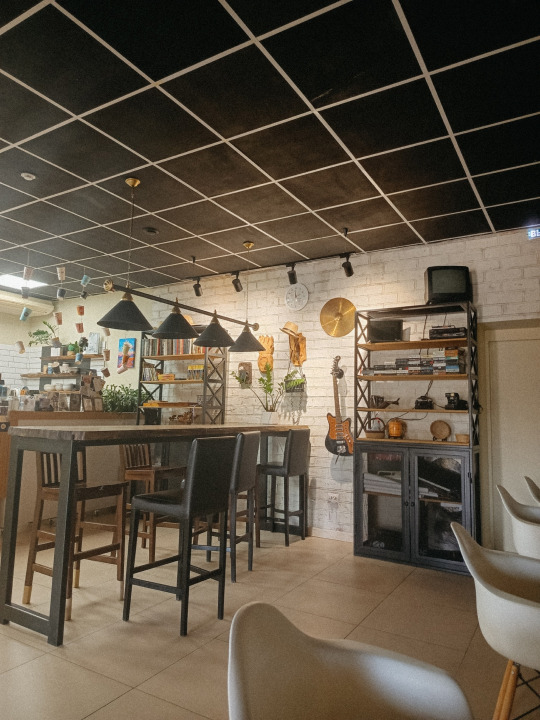

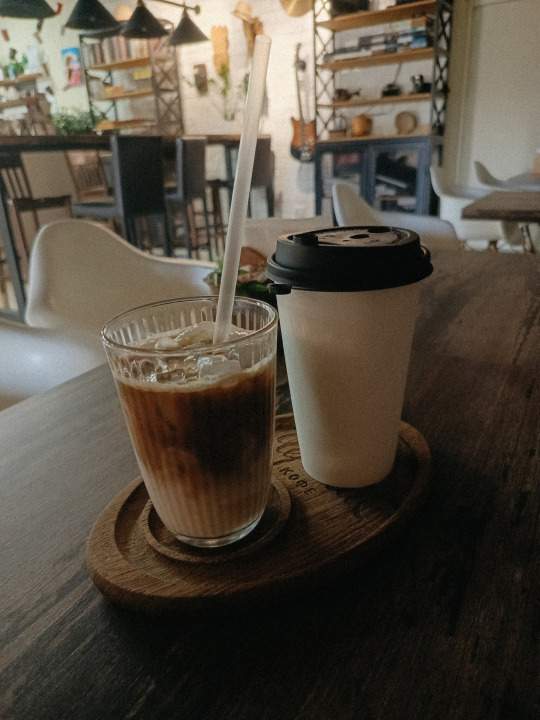
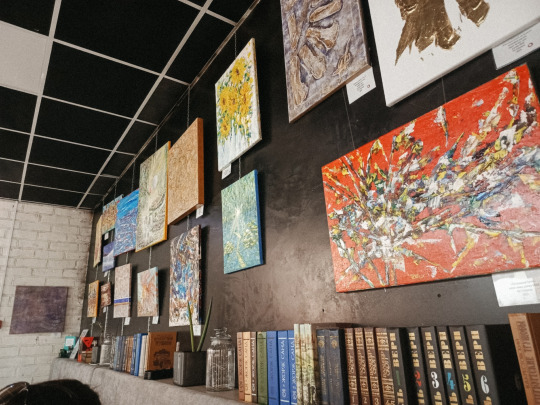
🔆📝 HOW TO KEEP YOUR LIFE ORGANIZED 📝🔆
1. The 3 most important tasks. Write down the top 3 tasks you need to do during the day. Start your day with them, and then you won't have another day where you've managed the small things and there's no time left for the important things.
2. Make a task list. Every morning, make a list of tasks that you need to do during the day. This list will help you stay on top of your scheduled to-do's and make you more organized.
3. Do only one thing at a time. When you focus on just one thing, the work progresses a lot better than if you do several things at once, jumping from one thing to another.
4. Do it now. If something needs to be done, do it right now. Don't put it off for a minute, because then you'll find other reasons why that action needs to be postponed or not done at all.
5. Clear your workspace.Remove from your field of vision all unnecessary and superfluous things that can distract you.
6. Simplify, simplify, simplify! Find methods to simplify your actions so you can get your things done in less time with less effort.
7. Keep things in order. You don't want to throw things around your apartment or office. Put each thing in its place and then you will not need to spend time looking for them.
8. Sign up for a time planning service. Nowadays, there are many different services on the internet that help you plan and do what you have planned. You will be able to keep your to-do lists under control, work on them through your phone, get reminders on your phone or e-mail and more.
9. Examine your daily routine.Analyze your days. What takes up the most of your time, what you are often distracted by, what activities do little good. Try to remove habits from your life that interfere with your life.
10. Add color. Those who like to work with different colors can try creating a to-do list in different colors so you can see important to-do's at a glance.
11. Let others do.Some to-do's are worth delegating to other people (work or home).
12. Be positive.If you are not able to make your life organized in one day, you should not despair. Try, try, try and you will see that you and your life will start to change.
13. Set goals. It helps a lot to speed up the process of work if you clearly see the end goal you are moving towards.
14. Set a deadline.Understanding that you have a definite time limit on a task, you will be less distracted and relaxed.
15. Encourage yourself. When you finish some hard work, an important task or some project, then do something nice for yourself, maybe even celebrate the event. Positive emotions will help you in the future and make life more joyful.
#diary#my day#blogger#unidays#real life#science#biology#university#study motivation#study blog#student#100 days of studying#phd student#new studyblr#student life#study#study buddy#study community#study inspiration#study hard#study space#study tips#studyblr#studyblr community#studygram#studying#studyspo#studystudystudy#studywithme#uni student
131 notes
·
View notes
Text
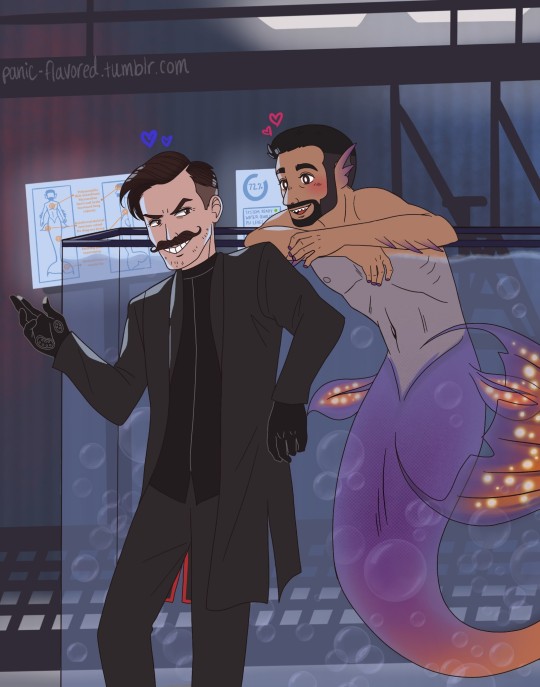
Some Stobotnik for MerMay!
❤️💙 when the hot fish man the government hired you to study is more fascinating than 100% of the humans you've met (and he loves all your diabolical ideas) ❤️💙
#mermay#stobotnik#doctor robotnik#agent stone#doctor eggman#mermay 2023#sonic the hedgehog movie#what if one of robotniks phds was in marine biology 👀#i might sketch more merman stone because i love him#my art#enlarge the pic for better quality... tumblr ruined it as usual T~T#stobotnik merman au
364 notes
·
View notes
Text
GENIUS IDEA: what if we fixed air pollution by turning all the carbon in carbon dioxide emissions into diamonds and become rich 😱😱😱😱🤯🤯🤯🤯🤔🤔🤔🤔😲😲😲😲
#physics#science#innovation#new discovery#quantum physics#quantum mechanics#biology#chemistry#biochemistry#scientist#stemblr#women in stem#molecular biology#medicine#doctor#phd#serious#/srs
14 notes
·
View notes
Text






17.05.24
After a depressive episode i decided to reromantisize my relationship with living things. One thing i used to enjoy a lot is fielwork which i am not doing anymore so i sneaked into other's people projects yesterday. Felt so energised and passionate even for short time!
#grad school#gradblr#phdblr#studyblr#study motivation#studyspo#academia#fieldwork#phd life#biology#birds#animals
34 notes
·
View notes
Text
some thoughts on doing science as a PhD drop out
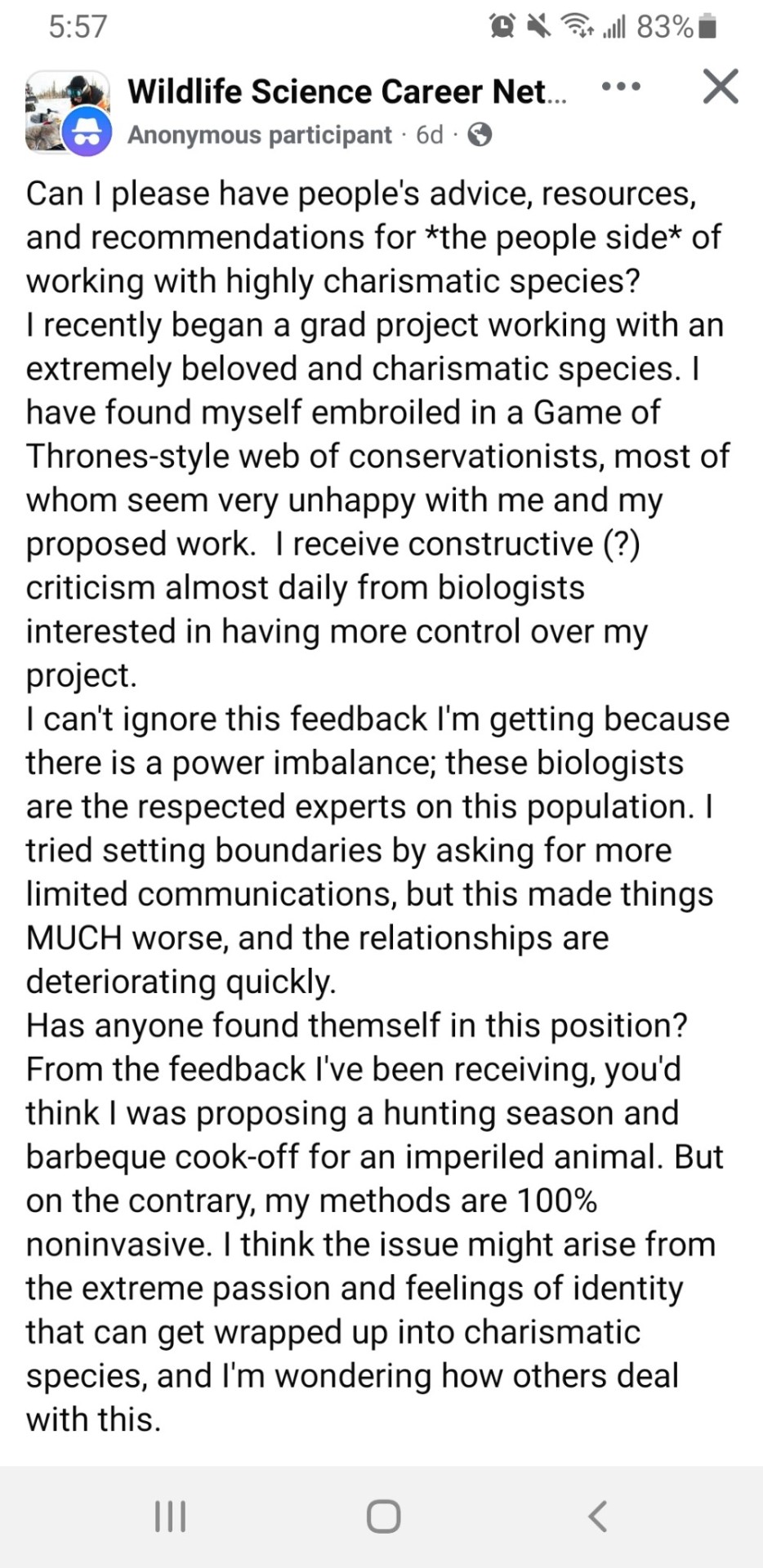
I saw this post on Facebook and it so perfectly summed up the gatekeeping aspect of doing research on a charismatic species. Ultimately the gatekeeping led to me quitting the PhD program, but I hadn't even really realized it until I read the way this person verbalized it.
When I did my undergrad thesis, I worked on reintroduced elk that no one really knew existed beyond a tiny group of biologists. Any research about these elk was exciting and GOOD, because so few people had the funding to study them. I got so much support from biologists and so much "wow, that's so cool, I had no idea we had elk here!" from the locals.
I love research. It plays up my strongest skills - outdoor field work, intense observation, patience, technical writing, and analysis. I love collaborating with people and seeing how we can ask new questions together.
I moved on to caribou for my masters and predators (wolves, bears, and cougars) for my PhD. Suddenly everyone and their dog had an opinion on these species. How they should be managed. Whether they should be studied or left alone. Whether my particular study had any value. And I heard about it. All. The. Time.
I started dreading talking about my research. I was so scared of people thinking my methods weren't rigorous enough, or I wasn't asking the right question, or I wasn't using the right statistical analysis for my question. It seemed like everyone I met had some sort of investment or special interest in my species, some reason why I had to consider their advice.
(Now don't get me wrong, I value constructive criticism from colleagues and appreciate suggestions for improvements, but these were constant, unending comments from people outside the field, people working on different species, and people I didn't ask for advice.)
Anyway. I didn't have any real kind of community or support from peers during grad school, especially compared to the network of Elk People I had during undergrad, and it, combined with the effects of the pandemic on the world, eventually led me to quit my PhD. Talking about my project felt hostile, no matter who I was talking to (and especially my labmates), and my heart wasn't in it.
The thing is, I love research. I love wildlife. I would love to pursue a PhD.
I think I just need a less charismatic wildlife.
#i honestly didnt realize this until i read that facebook post#it is insane how basic that is but the gatekeeping! i was in the middle of it and i didnt even realize!#i was recently thinking about going back for a phd looking at a very specific (dog) question NOT in wildlife biology#and the thought of completely switching fields academically is unbearable to me (esp because my job is biology)#but now im having other ideas#about getting back into wildlife biology academically#with some of my grasslands species#which are way less charismatic and (as a bonus) in my preferred biome#it is so basic and im so flabbergasted i hadnt considered it earlier#i need to think on this some more but#maybe stay tuned 👀
14 notes
·
View notes